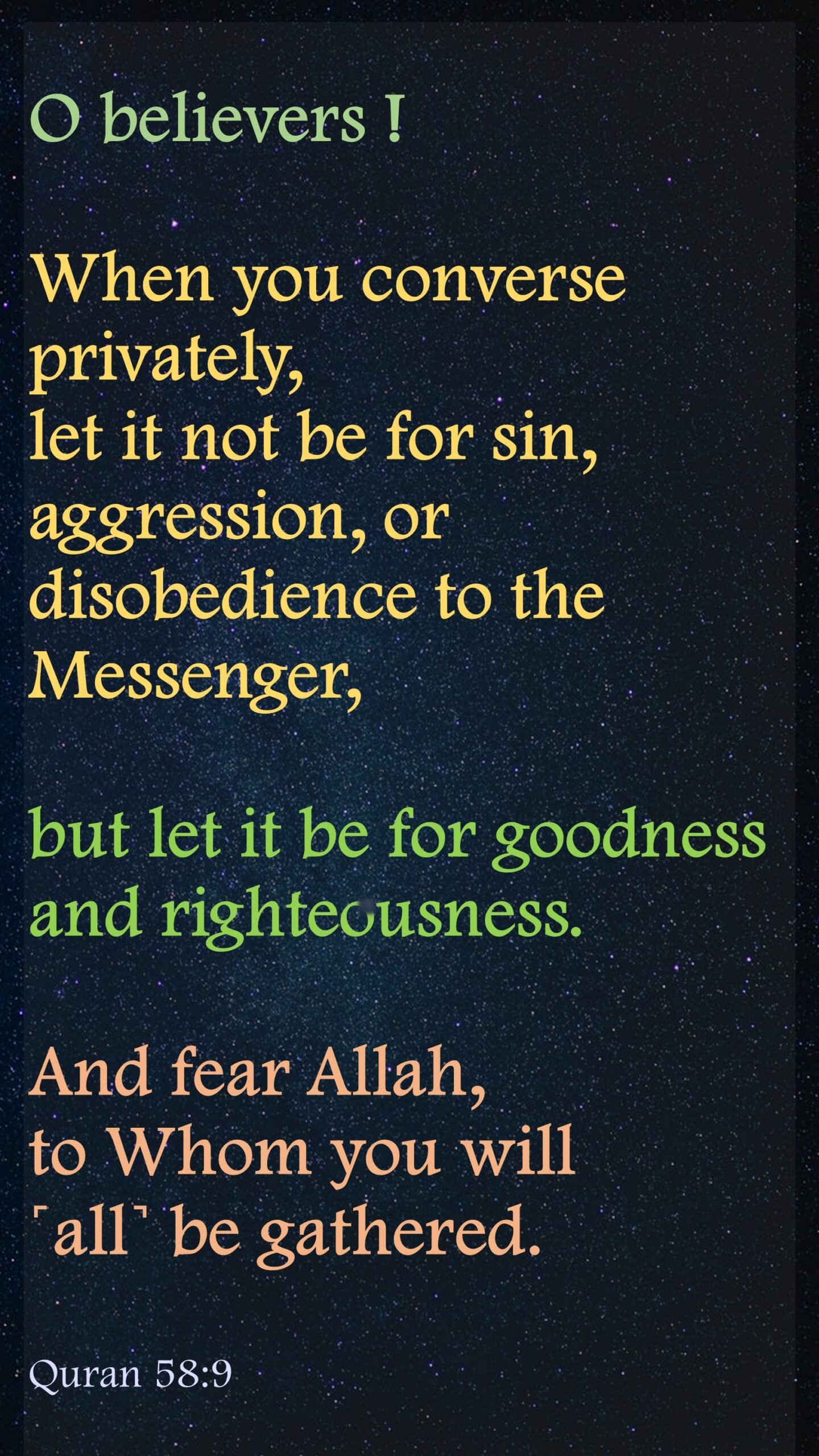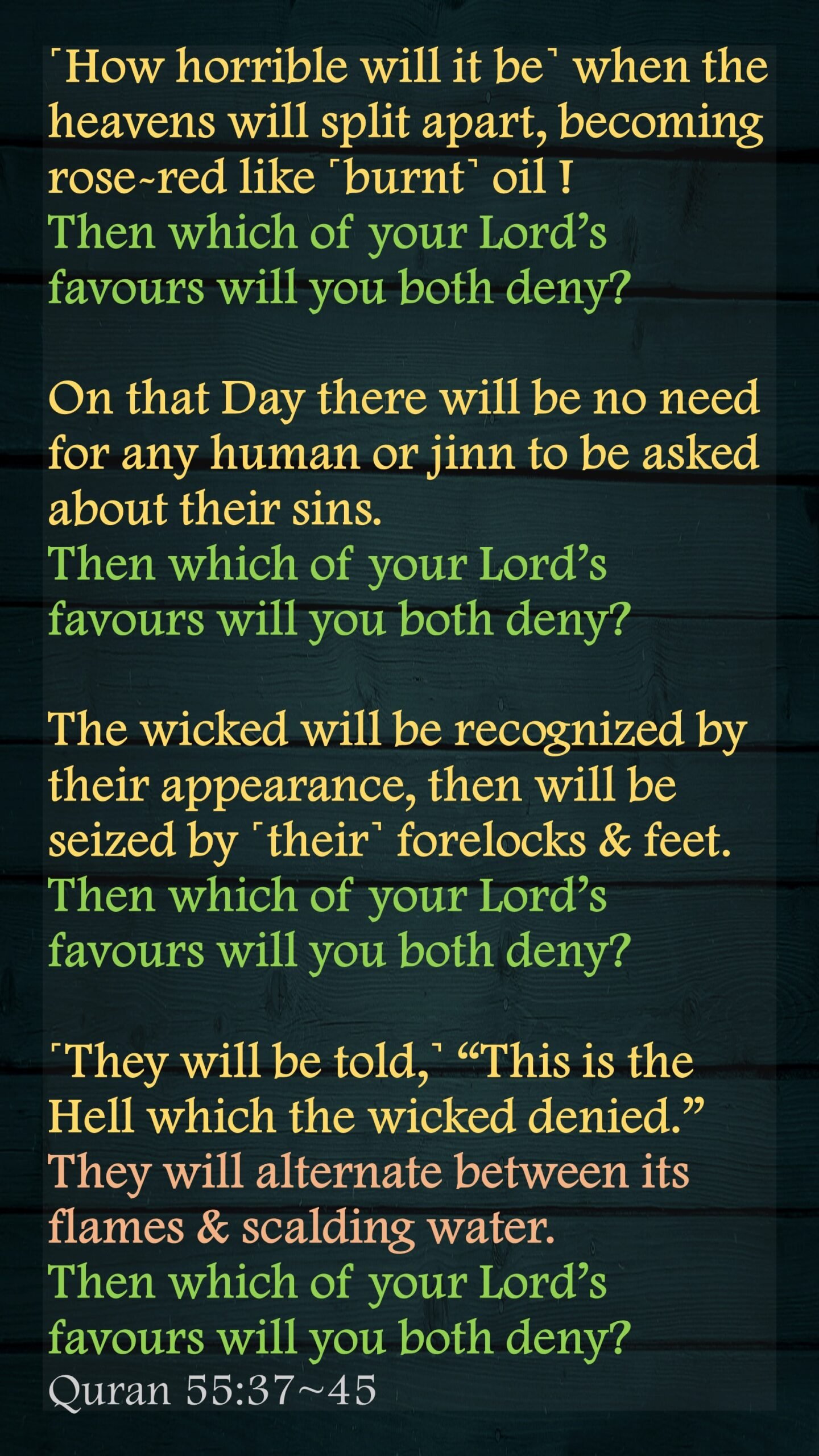Skip to Content
Tag Archives: judgement
- Home -
- Posts tagged "judgement"
( Page8 )
19
Nov, 2022
Islam, Quran
113, 114, 115, alike, Allah, ayat, book, chapter 3, daily, denied, encourage, evil, forbid, good, inspirations, islam, islamic, judgement, last day, mindful, never, not, people, perfect, prostrate, quran, race, recite, revelations, reward, righteous, Surah, true, upright, verses
17
Nov, 2022
Islam, Quran
Allah, alone, ayat, believe, belongs, bright, chapter 3, daily, disbelieve, earth, faces, forever, gloomy, heavens, injustice, inspirations, islam, islamic, judgement, Mercy, Muhammad, PBUH, Prophet, Punishment, quran, return, revelations, SAWW, Surah, truth, verses 106 to 109
13
Nov, 2022
Islam, Quran
Allah, ayat, covenant, daily, day, fleeting, gain, hereafter, inspirations, islam, islamic, judgement, look, losers, neither, no share, oath, painful, Punishment, purify, quran, speak, suffer, Surah
18
Oct, 2022
Islam, Quran
Allah, Ar Rum, ayat, Chapter 30, daily, day, disbelieve, evening, Glorify, good, hour, inspirations, islam, islamic, judgement, morning, Punishment, quran, rejoice, Rome, split, Surah, verses 14 to 18
15
Oct, 2022
Islam, Quran
affairs, Allah, ayat, being, birth, daily, day, denial, earth, heavens, hereafter, inspirations, islam, islamic, judgement, Life, meeting, oblivious, people, period, purpose, quran, reflected, Romans, Rome, Rum, Surah, term, worldly
7
Sep, 2022
Islam, Quran
all, Allah, ayat, believers, converse, daily, day, disobedience, fear, gathered, goodness, inspirations, islam, islamic, judgement, messenger, Muhammad, not, PBUH, privately, quran, righteousness, SAWW, sin, Surah
6
Sep, 2022
Islam, Quran
Al-Mujādilah, Allah, ayat, Chapter 058, daily, day, deeds, disputes, inspirations, islam, islamic, judgement, knowledge, knowledhe, perfect, private, quran, she, Surah, talk, verse 7, المجادلة
30
Aug, 2022
Islam, Quran
Allah, apperance, Ar-Rahman, ask, ayat, Chapter 55, day, deny, earth, favor, favour, feet, Flames, forelock, Heaven, hell, horrible, human, inspirations, islam, islamic, Jinn, judgement, Lord, quran, red, scalding, siezed, split, Surah, Water, wicked
21
Aug, 2022
Islam, Quran
Allah, ayat, blazes, bound, Chapter 54, daily, day, dragged, entrench, faces, fire, hell, inspirations, islam, islamic, judgement, misguidance, quran, Surah, taste, told, touch, Verse 47, Verse 48, wicked
5
Aug, 2022
Islam, Quran
Allah, angel, ayat, daily, day, denier, doubter, heedless, hell, inspirations, islam, islamic, judgement, Punishment, quran, Record, Severe, Surah, testify, trangressor, trumpet, viel, withholder










